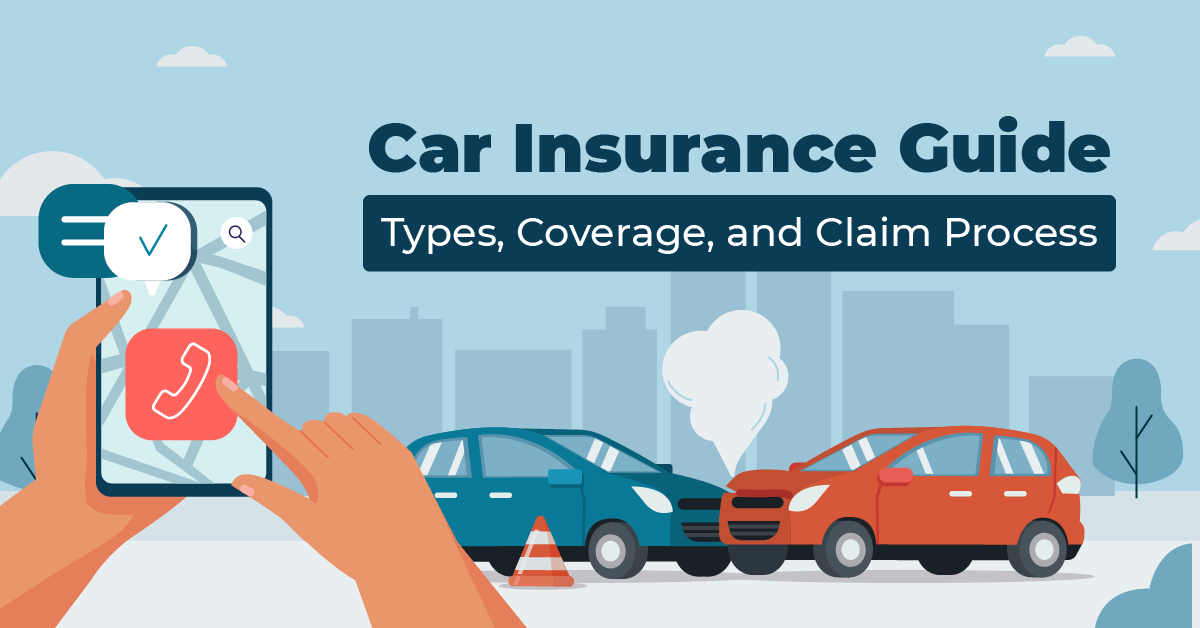Understanding the Legal Side of Car Insurance
Car insurance is not only a financial safety net—it’s also a legal necessity. If an accident occurs and your driver is the victim of property damage or a policyholder disputes a claim, the intersection of car insurance and legal advice is where financial protection meets legal responsibility. We break down the legal aspects of car insurance every driver needs to know.

Is Car Insurance Legally Required?
Yes. In the U.S., in many states, car insurance is required by law. The minimum requirements vary by state, but most demand liability coverage that pays for total injury and property damage you may cause to others. Failing to carry insurance can lead to:
* heavy fines
* License suspension
* Vehicle impoundment
* Civil lawsuits for damages
Without any insurance, driving will be tricky, and it will also become a big legal problem with long-term consequences.
Minimum Legal Requirements for Auto Insurance
* Each state has its required minimums. Common requirements include:
* Bodily Injury Liability (e.g., $25,000 per person / $50,000 per accident)
* Property Damage Liability (e.g., $25,000 per accident)
* Uninsured/Underinsured Motorist Coverage
* Personal Injury Protection (PIP) or Medical Payments in no-fault states
It’s crucial to know your state-specific insurance laws and ensure your policy meets or exceeds those thresholds.
When to Seek Legal Advice in a Car Insurance Case
Legal advice will become very crucial in the following situations:
1. Denied Claims
If your insurance provider denies a claim you trust is valid, a lawyer can help you understand your rights and hopefully challenge the denial through a judgment or a lawsuit.
2. Disputes Over Fault
In multi-vehicle accident situations or contested claims, legal advice helps protect your interests, especially when police reports and insurer decisions don’t align with your version of events.
3. Serious Injuries or Fatalities
When an accident results in serious injuries or loss of life, lawsuits and insurance limits will become complex. A personal injury attorney ensures you receive fair compensation or proper defense.
4. Bad Faith Insurance Practices
If your insurance company fails to act in good faith, slows down claims, pays low, or refuses coverage, you may have a legal claim for bad faith insurance conduct.
5. Lawsuits Filed Against You
You need a legal protection plan if you are being sued by someone else following an accident. Independent legal advice can be helpful in high-stakes conditions, even though your insurer usually offers legal representation.
Understanding Fault and Liability in Auto Accidents
Discovering who is at fault in an accident is critical. It will directly impact who pays and how much. States follow different liability models:
At-Fault States: The driver who caused the accident is responsible for the damages.
No-Fault States: Your insurance covers medical expenses regardless of who caused the accident.
Comparative Negligence: Fault is divided between drivers, and compensation is adjusted based on your percentage of fault.
Contributory Negligence: In a few states, if you’re even 1% at fault, you may be barred from recovering any damages.
Legal advice can clarify your liability under your state’s law.
Legal Advice for Dealing with Insurance Adjusters
Insurance adjusters represent their company’s interests, not yours. It’s important to:
* Avoid admitting fault
* reduce to give recorded statements without legal counsel
* Document all communications
* Consult a lawyer before accepting settlement offers
Accepting a lowball offer without knowing your rights could leave you covering the rest of the costs out of pocket.
What to Do After a Car Accident (Legally Speaking)
-
Call 911 and ensure a police report is filed.
-
Exchange information with the other party (name, policy number, vehicle details).
-
Document the scene with photos and videos.
-
Seek medical attention, even if injuries seem minor.
-
Report the accident to your insurer immediately.
-
Contact a lawyer if injuries or disputes arise.
Failure to follow the legal process could harm your claim.
Understanding Policy Terms and Conditions
Car insurance policies are legal contracts. Key legal terms include:
-
Declarations Page: A comprehensive overview of your coverage.
-
Exclusions: This section explains what’s not covered (e.g., racing, intentional damage).
-
Limits: The maximum amount your insurer will pay.
-
Deductibles: What you pay out-of-pocket before insurance kicks in.
Legal advice always helps you interpret these terms before or during a claim.
Suing an Insurance Company: When Is It Necessary?
You may have grounds to sue your insurer if:
-
They disallow a valid claim without any explanation.
-
They delay payment beyond a reasonable time.
-
They offer significantly less than the policy’s coverage promises.
Legal action may result in the insurer paying your full claim, legal fees, and even punitive damages in cases of bad faith.
How Legal Representation Can Maximize Your Settlement
A professional, experienced car insurance lawyer can:
-
Estimates the true value of your damages
-
Negotiate with insurers on your behalf
-
Collect evidence, medical records, and expert testimony
-
File legal documents and represent you in court
This ensures you don’t settle for less than you deserve.
Statute of Limitations for Car Insurance Claims
Each state has a specific time limitation for filing insurance claims and lawsuits after a car accident, generally between 1 and 4 years. Missing this deadline can eliminate your right to compensation.
Car Insurance Fraud: Legal Consequences
Providing false information on an application, presenting accidents, or elaborating on damages all come under the category of fraud. If you provide this kind of information, then the following consequences include:
-
Policy cancellation
-
Denial of claims
-
Criminal charges
-
Fines or jail time
Always correct information to your insurer and your lawyer. Never say any false information to either of them because it will affect the trust between you
Legal Tips for Choosing the Right Car Insurance
-
Read the fine print: understand exclusions and coverage limits.
-
Compare policies: compare multiple policies and select the cheaper one. The cheaper isn’t always better.
-
Ask questions. Clear all your doubts and questions to know completely.
-
Consider umbrella coverage for added liability protection.
Conclusion
A smooth claims process or financial ruin may depend on one’s understanding of the legal aspects of car insurance. You must know your rights and responsibilities, as well as when to get legal advice, which can enable you to handle any circumstance with confidence. A professional lawyer guarantees that you stay ahead of the game, whether you’re purchasing a new policy, managing a claim, or engaged in a legal battle.
